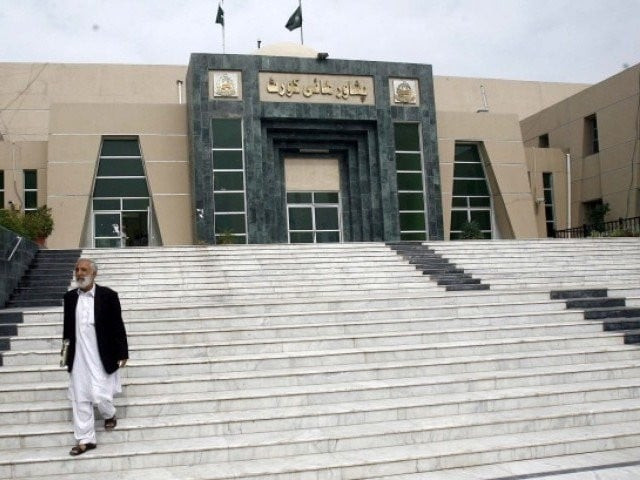Streamlining: ‘MTI act gives maximum autonomy to hospitals’
Lawyer says several amendments have been made to improve effectiveness

Peshawar High Court. PHOTO: PPI
Arguing over the Medical and Teaching Institutions (MTI) Reforms Act 2015, the lawyer of the medical and teaching institutions said the legislation gives maximum autonomy to hospitals to provide health care.
The comment was made during a hearing on Thursday where petitions challenging the MTI act were heard by a larger bench of the Peshawar High Court. Syed Arshad Ali, the lawyer, based his assessment on a comparison between the 2015 legislation and the Medical Health Institutions and Regulations of Healthcare Services Ordinance 2002.
He told the bench, which was headed by Chief Justice Mazhar Alam Miankhel, several amendments had been made to the MTI act after it was passed to improve its effectiveness.
He argued under the 2002 ordinance, two departments had been constituted to handle key affairs. These departments were expected to work under government supervision.
According to Ali, a management council has to be constituted for medical teachings institutions under the 2002 ordinance. Medical superintendents and chief executives have to be a part of the council.
“To further improve the services, the 2015 act has divided responsibilities,” he said. “The medical superintendent has been replaced with a medical director and hospital director.”
Ali contended the directors would be appointed for a period of three years by a Board of Governors (BoG) which will comprise 10 members.
“Under the 2015 legislation, the hospital director would deal with non-medical affairs of the hospital,” he said. “He does not need to be a doctor but must have a degree in management.”
He added the medical director would deal with clinical affairs of the hospital.
“Patients can file complaints over medical negligence to the medical director,” he said. “The medical director would be a full-time job who will not be allowed to carry out his private practice.”
Board of governors
Ali told the bench the chief executive has been replaced by a 10-member BoG comprising three government members.
“Later, the rules were amended and government members were removed from the board,” he said. “As a result, only seven private members are on the board.”
He told the bench, “Search and nomination councils would appoint members of BoGs for a period of three years.”
Miankhel asked the attorney to explain the logic behind appointing only private members instead of doctors on the board. Ali said the practice was fairly common across the world and cited various examples to validate this point.
“Every teaching hospital will have its own BoG,” he said.
The chief justice asked him to explain why the act was only implemented in four medical and teaching institutions.
“The legislation was implemented in four MTIs on experimental basis and it will
be extended to all institutions,” he said.
Ali said it was not applied to Ayub Medical College and was managed under the Board of Governor Ordinance 1978.
Responding to a question from Justice Nisar about who would appoint members of the search council, Ali said the responsibility would fall on the government.
Legal requirements
Advocate General Abdul Latif Yousafzai said the legislation was passed after fulfilling all legal requirements as per the assembly’s rules of business.
He added a select committee – comprising members from the treasury as well as opposition benches – passed the act after proper discussion. Yousafzai said the MTI act was not against fundamental rights guaranteed in the Constitution and was the provincial government’s manifesto to provide better health care facilities.
Published in The Express Tribune, December 4th, 2015.













COMMENTS
Comments are moderated and generally will be posted if they are on-topic and not abusive.
For more information, please see our Comments FAQ